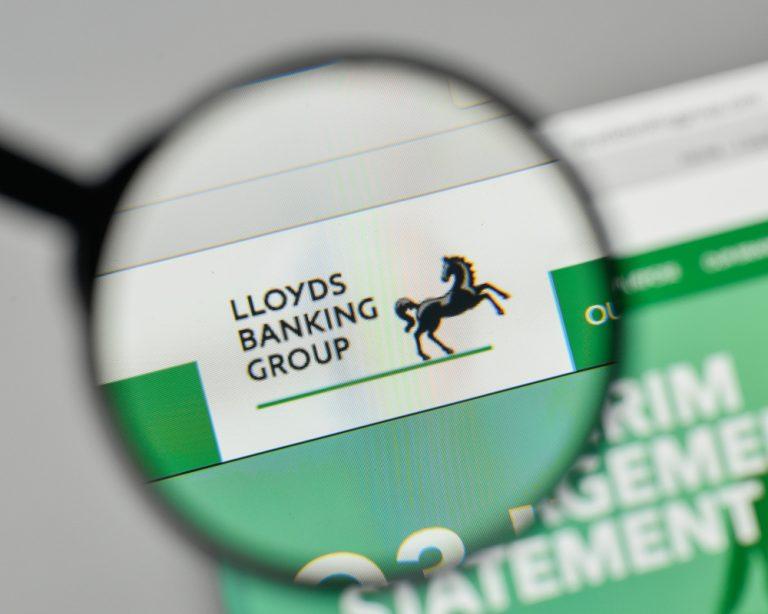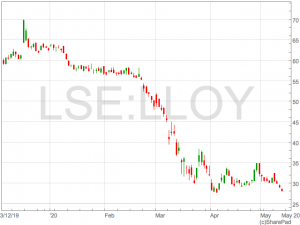
The Lloyds share price (LON:LLOY) was fully involved in the rebound rally from the low point in March, having rallied from 27.9p to 34.6p, a gain of over 20%.
The rally in Lloyds and other UK banks was sparked by optimism surrounding the reopening of economies and a consistent drop in the number of new coronavirus cases, which brought the pandemic under control.
However, Lloyds shares have since resumed their decline as investors digest the economic impact of coronavirus in the first quarter and what it could mean for second quarter activity.
There was an initial consensus the global economy would experience a V-shaped recovery, but with UK GDP falling 5.8% in April alone, a sharp rebound looks unlikely in the short term.
There is also the risk of a second wave of coronavirus that could lead to a return to strict lockdown measures.
“Talk of a V-shaped recovery feels like wishful thinking, and we expect prolonged periods of depressed growth across the majority of the economy. A flatter, U-shaped recovery is more likely,” said Stefan Koopman an economist at Rabobank.
The acceptance of a longer, flatter, economic recovery can be attributed as reason for the recent drop in stocks that has seen the FTSE 100 drop from intraday highs around 6,200 to 5,760.
 Lloyds share price
Lloyds share price
The drop in the wider FTSE 100 benchmark saw Lloyds shares dragged down with it as they headed back down to 28p, and the March low.
The prospect of a slow recovery in the economy will ultimately mean Lloyds profitability will take longer to return to pre-crisis levels.
The approval of mortgages is likely to be severely impaired through 2020 and generally reduced consumer confidence will impact Lloyds banking activity.
However, this is not to say that the lower levels of activity will last forever, and investors could see the current drop in Lloyds shares as an opportunity to pick some up, if they missed the initial sell off below 30p.
The unprecedented support from the UK government has averted a complete collaspse in the economy and ensured many in the UK have the income to support activity.
In addition, many households would have saved during the lockdown and created pent up demand which is likely to be unleashed on the economy as restrictions lift further.
This may come in the form of increased consumer spending, business activity and housing transactions, all of which benefit Lloyds.
Whether this take place in the third quarter of 2020 or first quarter of 2021, economic activity will return and provide upside pressure for Lloyds share price.
There is also the prospect for a return to dividends in 2021 which will be highly anticipated by the market.

